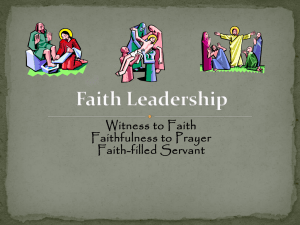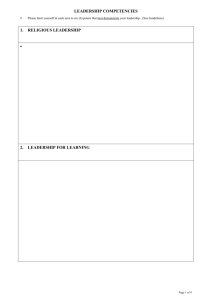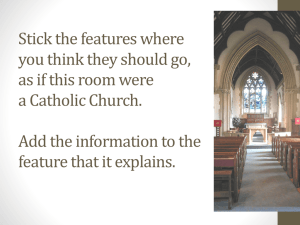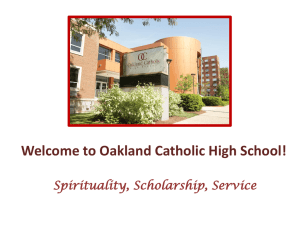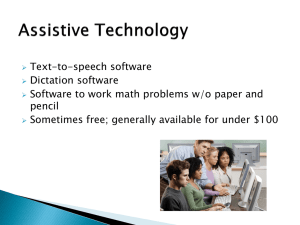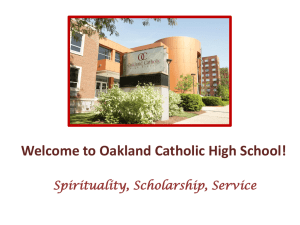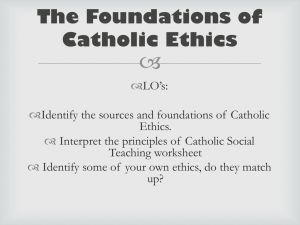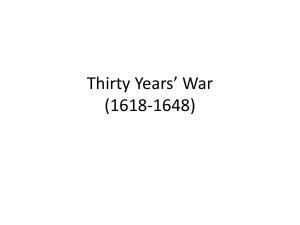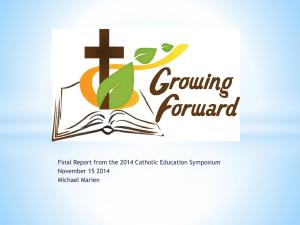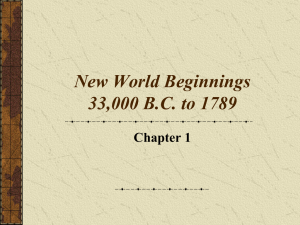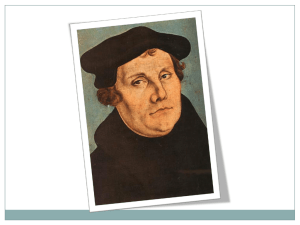Access to Catholic Education: High Schools
advertisement
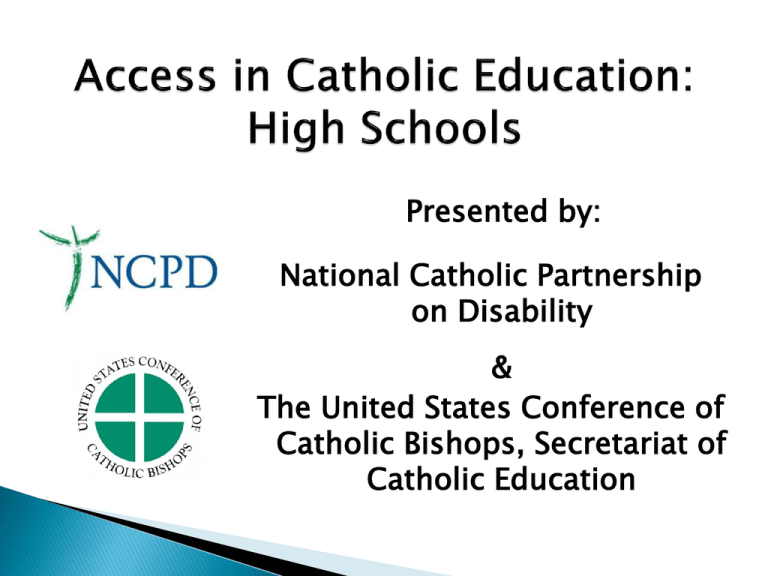
Presented by: National Catholic Partnership on Disability & The United States Conference of Catholic Bishops, Secretariat of Catholic Education Moderator: Marie Powell, Executive Director Secretariat of Catholic Education of the USCCB Marie Powell Dr. Karen Tichy Doreen Engel 1978 – Pastoral Statement of U.S. Catholic 1995 – Guidelines for the Celebration of the 1998 – Welcome and Justice for Persons 2005 – National Directory for Catechesis, Chapter 7 Bishops on Persons with Disabilities Sacraments with Persons with Disabilities with Disabilities: A Framework of Access and Inclusion Archived “replay” copy for all NCPD webinars are available at www.ncpd.org/webinars Webinar internet page available with a replay for 1 year; PowerPoint slides, transcript and many other resources indefinitely provided for each webinar Coming soon, DVD with both Elementary and High School webinars, plus their resources Those with identified disabilities Those who struggle academically if not provided with a variety of methods of instruction Those with medical or family issues which require sensitive response from school Let Us Pray… All: Loving God, you make each living person in your image. Guide our hands to build access and welcome. Guide our actions to create school communities open to the gifts of each individual. Give us understanding that your body is incomplete if people are left behind. Give us an appreciation of the role we must play in spreading your good news to all we meet. Guide us always, Lord, in your way. Amen (Adapted from prayer on NCPD website commemorating Bishops’ 1978 Statement) Dr. Karen Tichy Associate Superintendent for Instruction and Special Education Catholic Education Office Archdiocese of St. Louis Doreen Engel, MA Director of Special Education Archdiocese of Washington Catholic schools, at all levels, are called by their Faith to welcome and integrate into their communities students with many different talents and needs. A school community is enriched when it successfully does this. Almost all Catholic high schools provide an academic education which prepares students for education beyond high school. They rightfully take pride in the large number of graduates who enroll and succeed in college. Assumptions, cont. Educating students with special needs does not diminish the academic atmosphere of a Catholic high school if school personnel are willing to work with parents and students to assess a particular student’s needs and make efforts to respond to those needs. Assumptions, cont. Catholic schools are as unique as the students they educate. Thus we know that their ability to educate students with special needs will vary according to the physical layout of the school and the personnel and financial resources which are available. All Catholic high schools serve some students with special needs. Parents are asking us for help with their children. Good education is good education-period. Many Catholic high schools nationwide are doing this work, and doing it well. This should inspire others that it can be done. To Teach as Jesus Did Catholic social teaching Passing on our faith to all future generations Success stories (USCCB, 1972) All students have talents – sometimes surprising ones Truly “catholic” (root meaning: “universal”) Attention Deficit Disorder (With or without hyperactivity) Learning Disabilities Anxiety Depression Any combination of the above Accept that students with special needs are there, and can succeed. An open culture. Where can students go for help? How is confidential information handled? How do students know they are welcome at this school? Appropriate accommodations. Become familiar with those offered on the SATs or ACTs for examples for classroom application.

